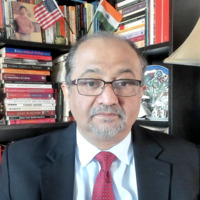Papers by Daniel Chasquetti
The Journal of Legislative Studies, 2016
ABSTRACT In legislatures with weak gatekeeping institutions and constrained plenary time, schedul... more ABSTRACT In legislatures with weak gatekeeping institutions and constrained plenary time, scheduling rules and majority requirements explain inter-party differences in the consideration and approval of law initiatives. In this paper a mixture survival model is used to analyse legislative success in a legislature with very weak gatekeeping prerogatives, the House of Representatives of Uruguay. Evidence is provided that the loss of majority support depletes plenary time more rapidly and yields an ideological drift that benefits the median voter of the House. The results inform recent debates on the endogenous formation of a plenary schedule in open sky legislatures.

Revista Uruguaya De Ciencia Politica, 2011
In the last two decades the Uruguayan political system has shown a cooperative relationship betwe... more In the last two decades the Uruguayan political system has shown a cooperative relationship between the two government branches. he Executives were able to pass their legislative agenda in an eicient way by building cartel-party at the Houses. his article proposes an explanation based on the theoretical developments of Cox and McCubbins (1993 and 2005), about the creation of legislative cartels in Uruguay. In particular, the article explains how constitutes a central authority in the House where the executive holds a dominant inluence, and how that authority usurps and controls the agenda power. I also present new evidence about the legislator’s cooperation with the party aims, with the hope of getting beneits to extent their political careers. he data show that in the brief periods where the party or coalition does not work cartelized (rupture of the ruling coalition), the government’s legislative agenda is severely afected.

Este libro presenta un nuevo marco para el analisis de la economia politica de los procesos presu... more Este libro presenta un nuevo marco para el analisis de la economia politica de los procesos presupuestarios en America Latina, que se basa en las siguientes premisas: i) el proceso presupuestario debe ser considerado como parte del proceso general de formulacion de politicas mas que de forma aislada; ii) los resultados del presupuesto no se pueden explicar completamente basandose solamente en una o dos dimensiones politicas o institucionales; iii) las practicas reales deben ser consideradas, asi como las reglas formales; iv) los procesos presupuestarios afectan las dimensiones de los resultados fiscales, ademas de la sostenibilidad fiscal, sobre todo la eficiencia, capacidad de adaptacion, y su representatividad; v) los actores politicos y sus incentivos deben ser considerados en las diferentes etapas del proceso de formulacion de politicas y en los diferentes contextos institucionales. Los estudios de casos son presentados para ocho paises de la region, y un capitulo final presenta las conclusiones y sugerencias para nuevas investigaciones.
Coparticipación y Coalición, 2000
¿ Un enfermo imaginario? …, 1998
Fragmentación política y gobierno en Uruguay, …, 1998
... Political Structure, and the Budget Process: The Case of Venezuela 257 lose Manuel Puente Abe... more ... Political Structure, and the Budget Process: The Case of Venezuela 257 lose Manuel Puente Abelardo Daza, German Rios ... Cristina Baus, Damian Bonari, Alejandro Bonvecchi, Andres Borensztein, lose Buttner, Luis Miguel Chiriboga, Paul Elguezabal, Shirley Herreno, lose ...
Parliaments, Estates and Representation
División de Estudios, Dec 5, 2017
PresCab basic data for (1985-2018)
Resena del Libro Sistema electoral y gobernabilidad en el UruguayJuan F. Faig GaricoitsTrilce, Mo... more Resena del Libro Sistema electoral y gobernabilidad en el UruguayJuan F. Faig GaricoitsTrilce, Montevideo 1995.
Latin American Societies, 2020
Malaise in Representation in Latin American Countries, 2016
In 2015, Uruguay completed 30 years of uninterrupted democracy, a period during which elections r... more In 2015, Uruguay completed 30 years of uninterrupted democracy, a period during which elections regularly took place and the three main political parties had a turn in government in a context of total respect for liberties and political rights. This is reflected in international rankings which identify Uruguay as one of the region’s most solid democracies.1 This privileged situation is, however, not a recent or casual phenomenon but, rather, the product of an institutional and cultural process that began in the early twentieth century and has continued through to the present day with only two interruptions of democracy.2











Uploads
Papers by Daniel Chasquetti